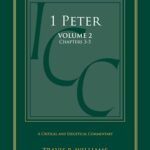What about the Framework Interpretation? (Part 2)
 With this post I continue my critique of the framework interpretation of the creation week. As I stated in the previous post, three major theses support the framework view. Having looked at the first argument, I will focus on the second argument in this post.
With this post I continue my critique of the framework interpretation of the creation week. As I stated in the previous post, three major theses support the framework view. Having looked at the first argument, I will focus on the second argument in this post.
The Creation Account Controlled by Ordinary Providence — With the second major argument of the framework view, Kline presents the case that God used ordinary providence (God’s non-miraculous operations in sustaining and directing all creation) to control the creation “week” (for my extended argument as well as documentation, see pp. 63–108 of my journal article). This argument, according to Kline, is predicated on interpreting “because it had not rained” in Gen 2:5 as presupposing that God would not have created plants until he first created an environment with the necessary rain to sustain the growth of those plants. Based upon this “unargued presupposition,” it is inferred that God used ordinary providence to control the creation “week.” In addition, if ordinary providence, as opposed to extraordinary providence (God’s miraculous intervention in the created order), controls the period of creation, then Gen 1:1–2:3 cannot be a sequential account because, for example, vegetation was created on Day 3 before the Sun was created on Day 4.
What works against Kline’s “unargued presupposition” in Gen 2:5 is the context in which this verse is located. As commentators consistently note, v. 5 is part of a series of six nonsequential clauses in vv. 5–6 that provide circumstances associated with the primary proposition in v. 7: the formation of man (“Then the Lord God formed man of dust from the ground…”). This initial proposition of v. 7, a waw consecutive that initiates a narrative sequence that is advanced by a series of 21 waw consecutives in Gen 2:4–25, introduces a narrative description of the state of the created order on Day 6 of the creation week when God formed his image bearers, Adam and Eve, to rule as vice-regents from the Garden prepared on the same day. Additionally, Gen 1:1–2:3 works against Kline’s interpretation because the creation account provides no evidence that God worked exclusively in this week through ordinary providence. In fact, the evidence is to the contrary. In Gen 1:2, the Spirit’s presence over the surface of the deep pictures his provisions for the creation. On Day 3 (vv. 9–13), the only works described are those of extraordinary providence. By divine fiat, the waters of the earth are gathered into one place, the dry land appears, and the earth produces full-grown plants along with its seed and fruit trees with seed in its fruit. The formation of man and woman on Day 6 (vv. 26–28) also involves God’s miraculous intervention. Therefore, Gen 2:5 does not establish a principle that God exclusively controlled the creation week by ordinary providence. A closer reading of the creation account in Gen 1:1–2:3 reveals that it is more accurate to say that the creation week is governed by extraordinary providence while God is concomitantly establishing the conditions in the created order so that it could begin to operate according to normal providence. Therefore, rather than assuming that the “unargued presupposition” of Gen 2:5 is that normal providence governed the creation period, the context of this verse describes the state of the created order on Day 6 of the creation week when God formed his image bearer to rule on earth as his vice-regent.
With the next post, we will look at the final argument supporting the framework view.



Decidedly excellent